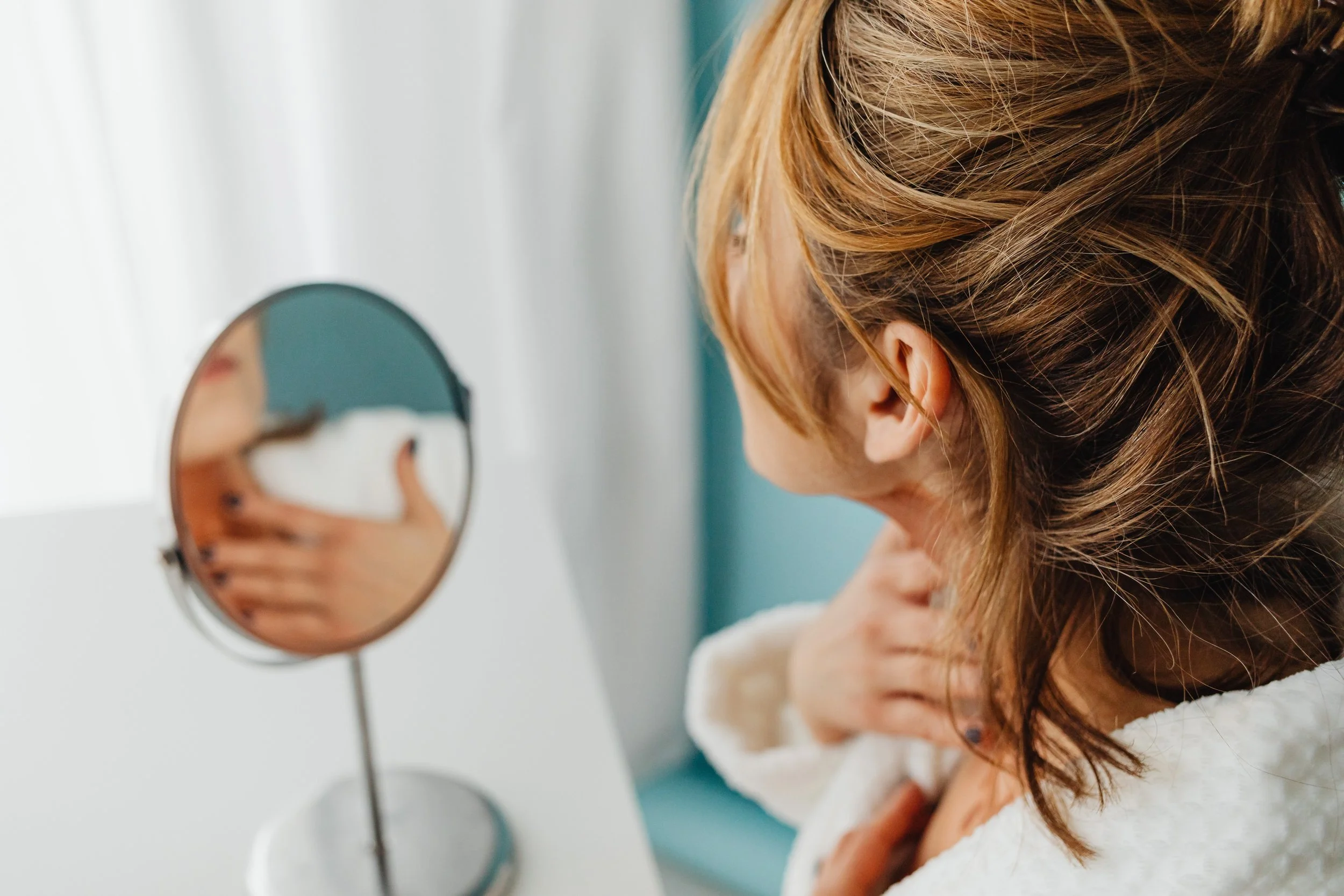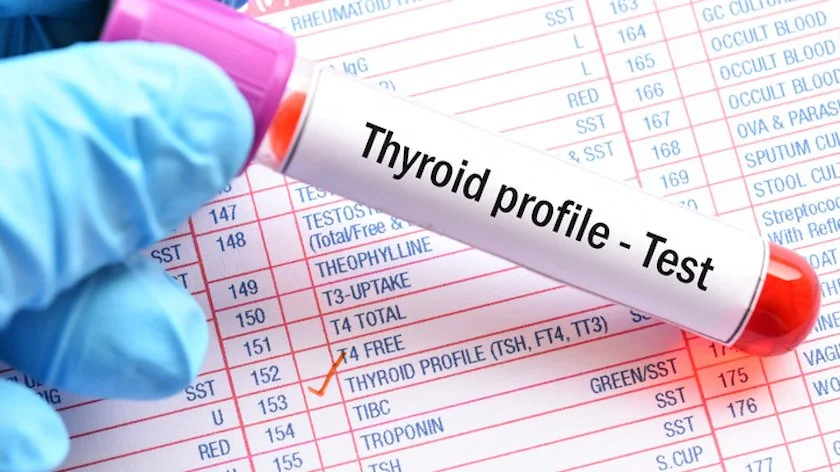Hypothyroidism - Improving thyroid function
One of the most common health conditions that’s affecting women right now is an under active thyroid. For many patients they go years without having it picked up and supported.
In this post I’ll take the time to break down some of the key symptoms, testing, causes and also explain some of the tools I use to support my patients who are struggling with hypothyroid symptoms.
Hypothyroid Symptoms
Whether you’ve been officially diagnosed or are simply suspecting that you’re thyroid is under active these are some of the key things to keep an eye out for:
Weight gain, without an increase in calorie consumption
Feeling cold
Feeling lethargic or tired
Having trouble sleeping
Dry skin and hair- Hair loss
Enlarged thyroid or neck swelling
Constipation
Low libido
Hashimoto’s Disease
If you struggle with weight gain, it may be because your metabolism is slow. When this happens, your body becomes less efficient at burning fat and more likely to gain weight. This slowing of metabolism can cause fatigue, brain fog, mood changes, and hair loss.
Hypothyroidism can be caused by a variety of conditions. One of the most common causes is Hashimoto’s disease, which is an inflammation of the thyroid gland that reduces the secretion of certain thyroid hormones.
Hashimoto's disease is an autoimmune disorder that results in the destruction of the thyroid gland. The condition, is characterised by an overactive immune system that attacks the thyroid gland.
Symptoms of Hashimoto’s thyroiditis can often occur after periods of great stress or an acute infection, but not always. The key thing to note is that you need indepth testing to uncover what’s going on with your actual thyroid hormone levels.
Look beyond TSH blood test readings, as you often see elevated thyroid anti-bodies before TSH levels are outside of normal range. Meaning you can begin supporting thyroid health before developing the full blown Hashimoto’s but more on that later.
Thyroid Testing
TSH (Thyroid-stimulating hormone) Test
Thyroid function tests are blood tests that screen for thyroid problems. The first test is usually a thyroid-stimulating hormone (TSH) level, and if that is out of range, the next step is to run a thyroxine (T4) level and then a triiodothyronine (T3) level.
Elevated TSH levels can suggest an underlying thyroid disease and you will need to dig a little deeper to find out more. As mentioned above TSH is a standard first line test covered by Medicare, however it may be worth you paying a little extra to have a full thyroid panel if you’re experiencing the above symptoms as TSH may show as ‘normal’ while the underlying picture is far from it.
T3- T4 and Reverse T3
Here we begin looking to some of the active thyroid hormones circulating in your system. These are much more telling of what’s actually going on with your thyroid function. Still not the complete picture but a good place to look if you’re suspecting the thyroid isn’t in optimum health.
Urinary Iodine Test
The measurement of urinary iodine (UI) provides an accurate approximation of dietary iodine intake. Intake of the element is divided into two categories: dietary and body-sourced. UI measurements provide a biological indicator of Iodine deficiency disorders by determining whether the body has sufficient levels.
This test should be conducted before you commence iodine supplementation. You don’t want too much iodine in the body as it can have an adverse effect on your health. Hence the importance of a customised approach and testing.
Thyroid Antibodies Test
This test will help you identify if there is an autoimmune component to your thyroid imbalance. Part of the job of your healthcare team is to uncover the causes of your disease and imbalance, and try and remove the cause if possible, understanding if there is an autoimmune component is vital in understanding what might be driving your thyroid issues.
Basal Body Temperature Tracking
One of the major clinical signs of hypothyroidism is low body temperature. Analyzing the body’s basal body temperature (BBT) through a simple temperature test is a fantastic way to assess your thyroid function in a low-cost, non-invasive way. It’s likely you’ll need further investigation beyond your temperature tracking but it’s a good starting point.
Subclinical hypothyroid
Testing for subclinical hyprothyroid
A standard TSH blood test won’t uncover a subclinical or early stage hypothyroid condition. If you suspect your thyroid health is off it’s helpful to run a full thyroid panel and see if some of your other key markers mentioned above are starting to look sub optimal.
There is a lot you can do to bring your thyroid function back to a healthier state, so long as you’re prepared to work with your diet, stress management and a sound anti-inflammatory protocol. You may start seeing significant improvements.
If you have elevated thyroid anti-bodies picking this up early means you can utilise herbal and nutritional medicine to try and lower these levels and reduce your incidence of developing a full blown Hashimoto’s autoimmune condition.
Early testing and detection is key for preventative medicine to be most effective.
Causes of Hyptothyroidism
Poor dietary habits – missing meals, high carbohydrate/low protein diets/poor vegetable intake.
Nutritional deficiencies – Zinc, Selenium, Iodine, Vitamin D, Vitamin A.
Toxicity from halides (fluoride, bromide, chloride) and heavy metals. (Testing is very helpful)
Gluten intolerance and other food intolerances.
Hereditary factors.
Adrenal fatigue/stress.
Poor methylation pathways/detox pathways.
Iodine and thyroid
Important note before you rush out to get your Iodine is that too much of this mineral can also be problematic causing damage to your thyroid cells. This is why comprehensive functional testing can be very helpful. You can find out more about iodine and thyroid function at this post here.
Loosing Weight with hypothyroidism
“I don’t eat half as much as my partner, I exercise and do all the things, yet I still can’t shift the weight!” This is a phrase I hear time and again from patients. The key thing to remember is that your thyroid will directly influence your ability to manage weight and if it’s out of balance we see that regardless of diet and exercise the weight continues to stick.
Testing is key, even after taking pharmaceutical medications for hypothyroidism you may still experience symptoms and many of my patients in the clinic do. Through working with diet, optimising nutritional status and addressing other factors you can effectively start seeing the weight comes off. A holistic approach to health here is key.
Thyroid hair loss
The fact that thyroid disorders can cause hair loss is common knowledge, but many people worry that all of their hair will fall out.
The truth is that hair loss due to thyroid disorders is usually temporary and can be improved, especially if you work with your endocrinologist and healthcare team to get tested and address all contributing factors. While it’s stressful to see the hair thinning there is hope and many people see a reversing of this.
Working with a naturopath to support your thyroid
As a naturopath working in Sydney I’m seeing the number of clients with thyroid dysfunction increase. If you are struggling with lethargy, weight gain and low mood or hair loss it is worth investigating.
I take a very customised approach to supporting my patients however a typical process when working through hypothyroidism with a naturopath may include the following:
Taking a thorough case history.
Referral for a full thyroid panel, if you haven’t already had one.
Implementing herbal medicine and nutritional medicine for the support of healthy thyroid function.
Addressing any existing chronic inflammation in your body from other health conditions. To help reduce the chances of developing auto-immunity.
Implementing a stress management protocol in order to again reduce the pressure on your thyroid.
For the best outcomes we need to take a whole body approach to supporting your health, your body is unique and we must work with a custom approach taking into consideration any medications you’re currently taking. If you have any questions and would like to gain some support with this please book a complimentary 15 minute call below.











